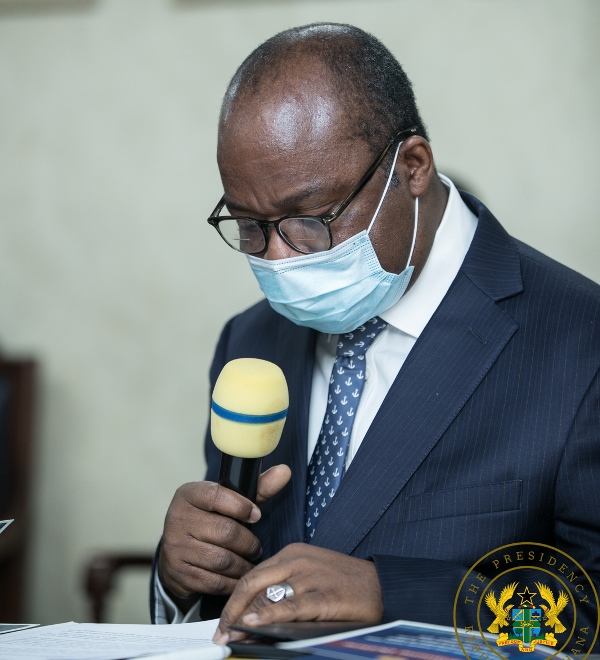Published
4 years agoon
By
Joe Pee
Cost of loans continue to fall but marginally, as average lending rate stood at 20.61% per annum in June this year.
This is equivalent to 1.72% interest on loans per month.
However, the average lending rate varies among the banks and the respective sectors.
For instance, some banks will offer loans as low as 17% per annum, whilst others charge rates as high as 27%. Overall, it will depend on the risk profile of the customers.
Also, lending to the agriculture sector is considered riskier than the manufacturing sector, and therefore credit to the agriculture sector will be higher.https://6a4ed1f5ed43af74f878691100e28a3f.safeframe.googlesyndication.com/safeframe/1-0-38/html/container.html
According to data from the Bank of Ghana, average lending rate fluctuated in the first quarter of the year, but has since retreated.
In January, average lending rate was 20.97% but shot up marginally to 21.02% in February 2021, and then fell to 20.96% in March 2021.
It has since been falling albeit slightly. In April 2021, it was 20.93% but went down again to 20.85% in May 2021 and then to 20.61% in June 2021.
In March 2020, average cost of credit was estimated at about 23%, but took a nose dive to about 21.95% in June 2020. Though a marginal reduction, many analysts and market watchers will welcome it, since the cost is quiet substantial when you compute it.https://6a4ed1f5ed43af74f878691100e28a3f.safeframe.googlesyndication.com/safeframe/1-0-38/html/container.html
Many have commended the Central Bank, led by Dr. Ernest Addison, for its impressive policies that have ease the cost of credit in the country.
BoG policies key in stabilising prices and lowering interest rates
Senior Partner at accounting and auditing firm, Anthony Sarpong, said policy interventions by the Bank of Ghana including the Monetary Policy have been key in stabilising prices and keeping interest rates relatively low despite the impact of covid -19 on the economy.
According to him, economic growth generally after a pandemic slows down, but the policy interventions by the Central Bank in stimulating demand and supply in the economy has played a key role in supporting growth.https://6a4ed1f5ed43af74f878691100e28a3f.safeframe.googlesyndication.com/safeframe/1-0-38/html/container.html
He told Joy Business that the Central Bank has done well in supporting the economy in this time of difficulty
“If I take it from the monetary point of view from the Bank of Ghana, you will notice that they [BoG] have fairly manage the exchange rate well. For a long time, the Ghana cedi has stabilised and even in its [BoG] last report appreciated against the dollar and of course a little marginally against the British Pound”, he mentioned.
Fiscal economy a concern
However, going forward, the concern will be about the fiscal management of the economy that is the ballooning debt and high fiscal deficit which is very crucial because of its rippling effect on the monetary economy.https://6a4ed1f5ed43af74f878691100e28a3f.safeframe.googlesyndication.com/safeframe/1-0-38/html/container.html
There are concerns that banks may take a hit from the country’s sovereign debt as outlook deteriorates.


Mahama Vows to Usher in Era of Fiscal Discipline and National Renewal


Elon Musk changes his name to Kekius Maximus on X


Mahama Calls for Unity Among Political Parties to Drive Ghana’s Renaissance


President-elect Mahama Rallies NDC Supporters: “Pray Harder for Ghana’s Transformation”


Ghana’s Economy on the Rise: President Akufo-Addo Highlights Robust Growth in 2024


EC Declares Final Verdict in Dome Kwabenya: Faustina Akurugu Elikplim Clinches Victory Amid Controversy


Thousands displaced as post-election unrest grips Mozambique


Former Black Stars Player Samuel Inkoom Faces Court Over Alleged Visa Fraud


Stonebwoy and Samini Mend Ties with Emotional Reunion at 3FM All White Party

























